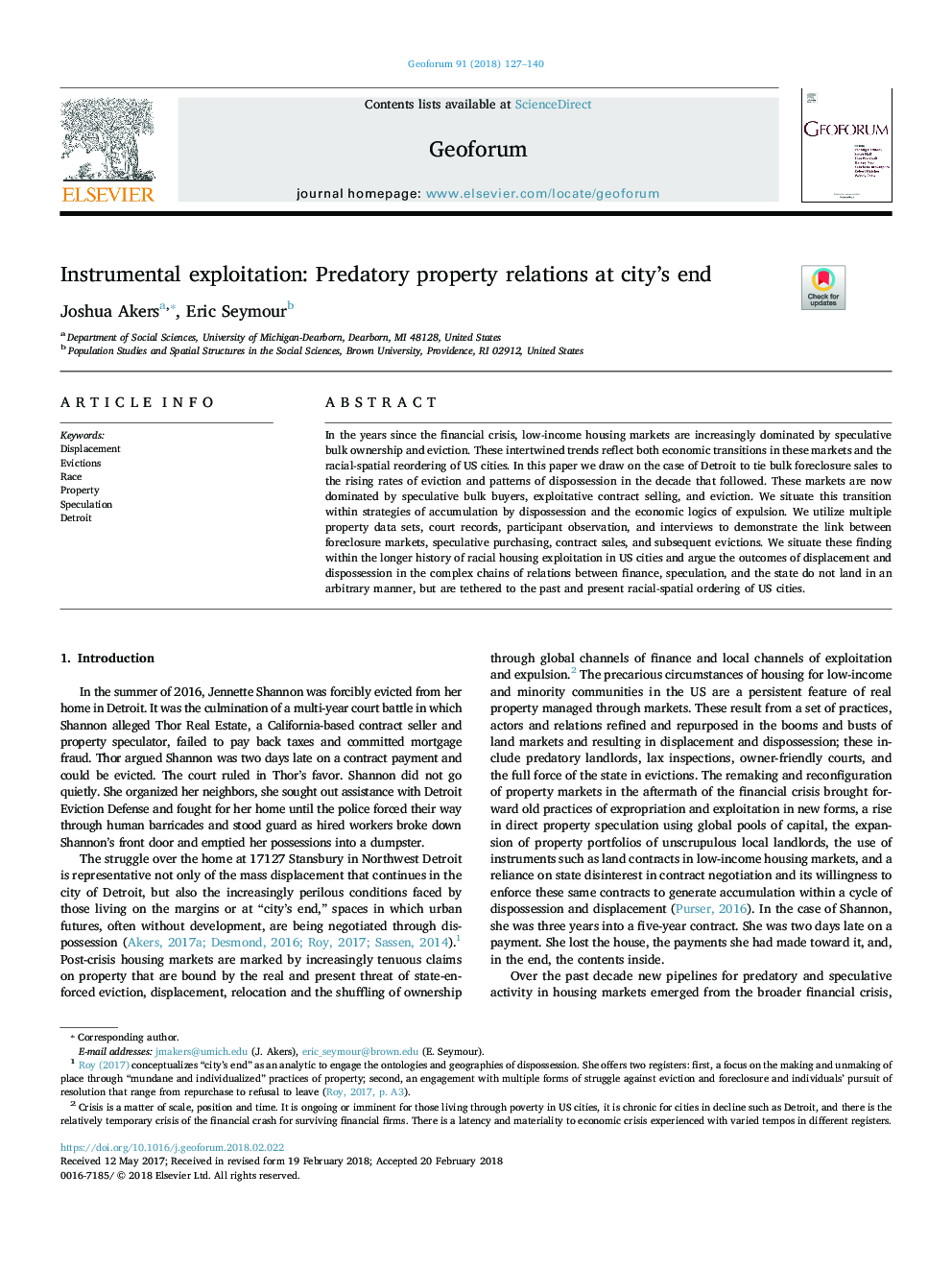| Article ID | Journal | Published Year | Pages | File Type |
|---|---|---|---|---|
| 7353563 | Geoforum | 2018 | 14 Pages |
Abstract
In the years since the financial crisis, low-income housing markets are increasingly dominated by speculative bulk ownership and eviction. These intertwined trends reflect both economic transitions in these markets and the racial-spatial reordering of US cities. In this paper we draw on the case of Detroit to tie bulk foreclosure sales to the rising rates of eviction and patterns of dispossession in the decade that followed. These markets are now dominated by speculative bulk buyers, exploitative contract selling, and eviction. We situate this transition within strategies of accumulation by dispossession and the economic logics of expulsion. We utilize multiple property data sets, court records, participant observation, and interviews to demonstrate the link between foreclosure markets, speculative purchasing, contract sales, and subsequent evictions. We situate these finding within the longer history of racial housing exploitation in US cities and argue the outcomes of displacement and dispossession in the complex chains of relations between finance, speculation, and the state do not land in an arbitrary manner, but are tethered to the past and present racial-spatial ordering of US cities.
Related Topics
Social Sciences and Humanities
Economics, Econometrics and Finance
Economics and Econometrics
Authors
Joshua Akers, Eric Seymour,
